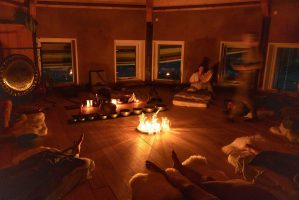What's better? Psilocybin mushrooms or ayahuasca if you have to choose?

If you have to choose, psilocybin is the safer, more practical and better-supported option for most people—especially in the Netherlands, where psilocybin truffles are legally available for guided work and ayahuasca (DMT-containing brews) is prohibited by court rulings.
Why psilocybin usually wins
Psilocybin has the strongest modern clinical evidence across depression and related conditions, including a large randomized trial showing that a single 25 mg dose reduced depressive symptoms more than a very-low-dose control, and a head-to-head study against escitalopram where secondary outcomes generally favored psilocybin. Ayahuasca does have promising data, notably a randomized, placebo-controlled trial showing rapid antidepressant effects in treatment-resistant depression, but its evidence base is smaller and less standardized than psilocybin’s.
Safety and interactions
The biggest practical divider is drug–drug and diet interactions. Ayahuasca’s harmala alkaloids act as monoamine-oxidase-A inhibitors, which raises the risk of serotonin syndrome with SSRIs/SNRIs (for example, venlafaxine) and requires tyramine-related dietary care; these constraints don’t apply to psilocybin in the same way. If you use serotonergic antidepressants, psilocybin is usually the safer path; ayahuasca should be avoided.
Legal and practical reality in the Netherlands
In the Netherlands, ayahuasca is illegal following High Court decisions that rejected religious exemptions; DMT in ayahuasca falls under the Opium Act. By contrast, psilocybin-containing truffles (sclerotia) are sold legally in smartshops, even though “magic mushrooms” themselves are banned. That legal clarity is why guided psilocybin-truffle sessions are straightforward to arrange, while ayahuasca is not.
Bottom line
Choose psilocybin if you want a well-studied, legally accessible option with fewer interaction pitfalls and more predictable dosing. Choose ayahuasca only if you can guarantee a legal pathway and you are not on serotonergic medications, since its MAOI component changes the risk calculus significantly.
Accorindig to my experience: I prefer magic truffles of mushrooms over ayahuasca for casual and healing psychedelic sessions. But I like sometimes Ayahuasca over psilocybin for the whol ritual when I have the time for the ritual. But ayahuasca needs a lot of work before the trip (dieta).
I like ayahuasca for it's strength. When I do Ayahuasca it does a lot and drags me into a trip or it doesn't do anything at all. There is no route in the middle. With mushrooms it has a lot of strengths and amounts of control you can still have on the trip, which is good and bad and the same time.
For full blown trips: Ayahuasca
For controlled dosage and control: Psilocybin mushrooms or truffles
What @Marcel and @Research correctly identify is that this isn't a matter of one being 'better' universally, but rather psilocybin being better fitted for modern therapeutic practice. Here's the deeper neuropharmacology:
The MAOI component in ayahuasca is fascinating but complicating. Harmala alkaloids (harmine, harmaline) inhibit monoamine oxidase-A, which increases serotonin, dopamine, and norepinephrine in the synapse. This creates a more robust experience, but also requires strict dietary tyramine control and carries genuine interaction risks. Psilocybin works purely as a 5-HT1A/1B/1D partial agonist without MAOI activity, making it far simpler pharmacologically.
Neurologically, both affect the default mode network (DMN), but differently. Ayahuasca's stronger MAOI component creates a more 'forced dissolution' of the DMN, which many experience as overwhelming or intense. Psilocybin allows for a more nuanced DMN disruption where you retain some metacognitive distance. For trauma work and anxiety disorders, this controlled disruption is therapeutically superior. For raw spiritual breakthrough, ayahuasca's intensity might appeal more.
From a neuroinflammation perspective, which Research touches on: Psilocybin shows stronger anti-inflammatory effects in the central nervous system through glial activation, particularly microglia modulation. Ayahuasca's data here is less robust, though emerging research suggests similar pathways.
What Pamela and Marion both capture is important though: ritual and intention matter enormously. Ayahuasca's extended ritual (dieta, ceremony, songs) creates a different psychological container than a truffle session. If you value ceremonial depth and can safely manage MAOI interactions, ayahuasca remains valuable.
Final insight: the 'choice' often reveals what you're seeking. Psilocybin for clinical efficacy, safety, and integration into modern life. Ayahuasca for shamanic depth, if you have the time, resources, and medical clearance. They're not equivalent alternatives - they're tools for different journeys.